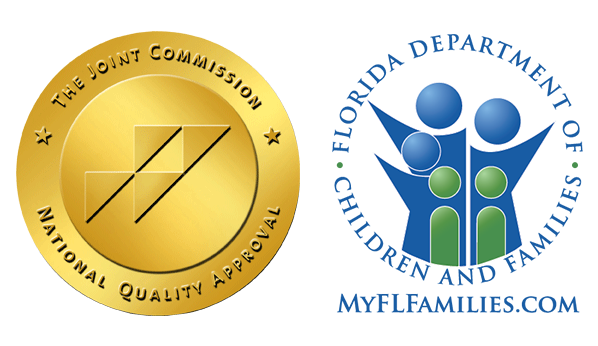If you have been drinking too much for a while, have an alcohol dependence, and are thinking about stopping, you may have recently turned your thoughts to alcohol detox, alcohol detox symptoms, and the length of time you may feel them for.
If this resonates with you, it is worth uncovering what your options are for medical detox. Alcohol withdrawal symptoms are not only very unpleasant, but they can be fatal.
Alcohol Withdrawal Symptoms
The more you drink alcohol, the more your body and mind get used to functioning while under its influence. Tolerance builds up, and you become addicted, meaning that you are unable to stop drinking without experiencing alcohol withdrawal symptoms. These symptoms include:
- Anxiety
- Depression
- Sleep disturbances
- Mood changes
- Nausea
- Vomiting
- Diarrhea
- Increased pressure
- Seizure risks
- Stomach upset
- Sleepiness
- Fatigue
- High blood pressure
- Alcohol cravings
- Delirium tremens
But how long does it take to detox from alcohol? Alcohol withdrawal symptoms usually occur within eight hours after your last drink, rising in severity and generally peaking between 24 and 72 hours. Depending on the amount of alcohol consumed, the amount of time you drank for, and if you have previously been through withdrawal, you can experience relatively mild symptoms, or you can experience severe alcohol withdrawal.
Milder symptoms might be uncomfortable, but they are manageable. Severe withdrawal symptoms from ceasing alcohol consumption are very unpleasant and can result in delirium tremens, which causes:
- Tremors
- Shaking hands and feet
- Chest pain
- Confusion
- Fever
- Anger
- Severe hyperactivity
- Hallucinations
- High blood pressure
- Passing out
- Problems with eye muscle and movement
- Seizures
If you believe that you may be at risk of delirium tremens, you must complete medical detox.
How To Prepare for Alcohol Detox
It is natural to feel nervous before you begin your alcohol detox, especially if you have been through alcohol detox before and found it unpleasant. Likewise, you might be concerned that you will not make it through and give up as some withdrawal symptoms become too uncomfortable.
Fortunately, there are some things that you can do while you are detoxing that will make alcohol detox a little easier to get through.
Drink Plenty of Fluids
This one is very important, as alcohol withdrawal can cause you to lose fluid through vomiting. Drinking fluids helps you to replenish those that are lost. The best drinks are those with electrolytes in. If you encounter sugar cravings, feel free to drink sugary beverages. Alcohol has high sugar content, and your body has not yet adapted to functioning without it.
Seek Support
There are no two ways around it; alcohol detox can be very challenging. The whole host of symptoms that it comes with can wear you down and make you feel like throwing in the towel. It is at these low points that you most need support.
Having someone on hand who can sympathize with what you are going through and spur you on to keep going can help immensely, both in keeping your spirits up and making sure you don’t quit just before you start feeling better!
Exercise
This is not likely to be possible in the grip of the most severe symptoms, but once you are starting to feel a little better and the most severe alcohol withdrawal symptoms subside, you can think about exercising. There is no need to try and run a marathon at this point.
A walk to the end of the street and back, a few push-ups, or some gentle stretching can be all it takes to help mental and physical symptoms reduce a little.
Meditate
Meditation helps you feel calmer and more relaxed when the anxiety from withdrawal affects you. Five or 10 minutes a couple of times a day can be of enormous benefit and can reduce withdrawal symptoms and make the detox process easier.
Listen to Music
Your feelings become numb when you are in the grip of alcohol addiction. When you stop drinking, these feelings come back. Try listening to some music to help reduce them.
Even though you are in withdrawal, you might find that you enjoy it more than you usually would.
Stay Strong
Keeping a positive mental attitude is crucial. Remember that alcohol withdrawal symptoms do not last forever and that “this too shall pass.”
Take Medication
Two of the most commonly used medications for alcohol withdrawal are Valium and Gabapentin. These help with insomnia, reduce anxiety, and reduce the chance of experiencing a seizure during delirium tremens.
Baclofen is also often used for acute alcohol withdrawal as it relaxes the muscles, making people feel more comfortable through the detox process.
It is worth noting that the most effective medications tend only to be legally available for use at substance abuse treatment centers, where medical professionals carefully monitor their use.
Alcohol Withdrawal Timeline
Initial symptoms can start within a few hours after your last drink. These first signs of experiencing withdrawal symptoms often just feel like mild anxiety and a bit of restlessness.
Next comes more severe symptoms, which start kicking in the next day. These rise in intensity, peaking at around 24 to 72 hours. If you experience delirium tremens, these will begin at this stage and last for a few days.
Remember, delirium tremens is extremely dangerous and involve life-threatening symptoms. These necessitate that you attend an alcohol rehab or similar center to be looked after when you are in this very sensitive stage.
Withdrawal symptoms ease up within a week and are over in 10 days for most people.
Post-Acute Withdrawal Symptoms (PAWS)
After the acute withdrawal symptoms alleviate, people often experience PAWS. These symptoms are milder than the initial withdrawal symptoms but can prolong for as long as two years. PAWS tend to be more psychological in nature and usually involves a low mood, anxiety, anger, insomnia, and fatigue.
Fortunately, there are many things you can do to reduce PAWS. Firstly, consider exercising to boost levels of neurotransmitters in your brain, which can be damaged through drinking for long periods.
Next, make sure you are surrounded by support. This could be friends and family, or it might be people that you meet in a recovery group.
Meditation can also be effective in reducing PAWS symptoms. Anything that reduces stress will be beneficial and will help you feel better while also reducing the amount of time that you will experience the protracted symptoms of PAWS.
After Detox from Alcohol
You might believe that you have no more work to do after you have detoxed from alcohol and you no longer experience withdrawal symptoms. Unfortunately, this is not quite the case. Treating alcohol use disorder involves a concerted effort after the alcohol is out of your system.
For many people, this means attending a substance addiction treatment center, who can give you all the information you need on addiction to help you live a life of sobriety. Part of this work involves looking at the reasons why you began using alcohol in the first place and addressing these issues. Sometimes, the root of a person’s alcohol drinking began years before they started drinking.
People often start drinking recreationally, but over time start drinking to mask difficult thoughts or feelings that they are experiencing. Treating substance use disorders involves processing these thoughts and feelings, meaning that you can live with them and not feel like you need to start alcohol consumption again.
Cross-Addiction
Once you have gone through alcohol detox and no longer experience withdrawal symptoms, you are now into your new life without the use of alcohol. At this time, it is essential to remember that you might still be vulnerable to cross-addiction, as this is where you risk becoming addicted to another substance that is not alcohol.
Make sure that you are particularly careful when you take pharmaceuticals in the future, as some of these, particularly pain medication, can lead you back down the road of substance abuse again, albeit with a different substance.
Should I Do Alcohol Detox at Home?
Most addiction experts recommend that you do not do a detox at home. The reasons for this are:
- Home detox is often unsuccessful. When people try to detox at home, they usually give in before the withdrawal symptoms are over. They might be around people with whom they had previously been drinking with, who may act as a trigger for them to trigger again, or who may attempt to persuade them that they do not have a drinking problem. Starting drinking again means that the entire detox process needs to be gone through again.
- Detoxing at home is dangerous. If you believe you will experience life-threatening symptoms due to delirium tremens, you should not attempt to detox at home, as this can lead to fatal seizures. Try contacting a detox center in your area to see how they might be able to help you with your detox.
- Detox can be uncomfortable. Being at home usually means being in the same situation that you drank in. Often, this might be a place that does not have the level of comfort you wish for, making the detox process harder to go through.
Conclusion
There is never a good time or place to go through alcohol withdrawal symptoms, but you must go through them to get to the other side, where freedom is.
If you are thinking about doing an alcohol detox and are concerned about how difficult it will be or whether you might experience life-threatening delirium tremens, call our staff at Beachcomber.
Our tropical center in Florida is an oasis for healing and features private cabins, chef-prepared meals, on-site therapy, and compassionate staff trained in medical supervision. You don’t have to do this alone.











